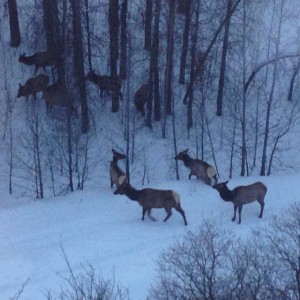I’m pretty convinced I won’t do today’s session justice. Partially because it’s getting late and I lose brain cells once the sun goes down, and partially because we had a double session today.
We began at 8:30 a.m. as usual. Our morning focus was equality and social welfare. We dissected some pretty powerful pieces including The Communist Manifesto, The Second Sex, and far and away my favorite of the series, MLK’s Letter from Birmingham City Jail.
Notably today also featured poetry, fiction and writings from women. The latter had been sorely lacking and frustrated me during my preparations last month. I appreciate reading texts from the canon, and I think there are ways to pair “classic” texts with more modern viewpoints.
But I digress.
Our discussion of Simone de Beauvoir’s piece, The Second Sex, was a pivotal one, as it was our first woman author and she was unapologetic in her stance. Our group is an amazingly diverse one, and the women especially represent a wide cross section of view points. Two things stood out to me in her piece. One was her discussion of “freedom of maternity.” I find that brilliant phrasing and it engendered quite a few comments. The other was her discussion of woman finding herself:
What woman essentially lacks today for doing great things is forgetfulness of herself; but to forget oneself it is first of all necessary to be firmly assured that now and for the future one has found oneself. Newly come into the world of men, poorly seconded by them, woman is still too busily occupied to search for herself.
Once we concluded that piece, we moved into into MLK’s powerful yet less well known masterpiece. It’s a brilliant document in many regards, but my favorite sections were his rationale for the Negro’s legitimate and avoidable impatience, and his profound disappointment with the white moderate. Wrote MLK:
Frankly, I have never yet engaged in a direct action movement that was "well timed" according to the timetable of those who have not suffered unduly from the disease of segregation. For years now I have heard the word "Wait!" It rings in the ear of every Negro with a piercing familiarity. This "Wait" has almost always meant "Never."
<and>
All that is said here grows out of a tragic misconception of time that will inevitably cure all ills. Actually time is neutral. It can be used either destructively or constructively. I am coming to feel that the people of ill will have used time much more effectively than the people of good will.
The work is parts rebuttal, documentation, poetry and provocation. If you’ve lived this long and have never read it, now is the time.
After lunch and a short break, we reconvened. The afternoon’s session on community included a poem, The Moose, which at first held little to no meaning for most of us. Through dialogue and reflection we unlocked the deeper meaning and then joked there would be a moose outside waiting for us at the end of our session.
As luck would have it, no moose were nearby, but we did (rather unexpectedly) see a family of elk! In the poem, a moose appears from the woods and inspires joy and wonderment. In real life, the elk did the same.

We closed the evening with fellowship and dinner.
And such was the beginning of the end of our time. Tomorrow is our last full day. Friday, we meet once more, dine and away.
—
Read the next post in the Aspen Seminar series.



